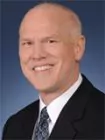As employees increasingly turn to Facebook, MySpace, LinkedIn, Twitter, YouTube, and other social media, both at work and in non-work settings, to comment about their workplaces, coworkers, and supervisors, employers face new and substantial risks when they attempt to regulate those communications through social media policies and disciplinary actions. The National Labor Relations Board ("NLRB" or "Board") underscored that risk when it issued two new complaints over the last few weeks involving social media. The first was against a New York nonprofit, Hispanics United of Buffalo, after it terminated five employees for criticizing their working conditions on Facebook, and the other was against a Chicago car dealership, Karl Knauz BMW, after it fired an employee who posted complaints on Facebook about the employer's handling of a sales event. These complaints follow the Board's three prior attempts in recent months to set the stage for litigating the lawfulness of social media policies and/or the discipline of employees for engaging in what the NLRB General Counsel views as protected activities on social media.
This Commentary discusses the regulation of social media policies under the National Labor Relations Act ("NLRA") and offers some practical considerations for employers seeking to establish social media policies in this uncertain legal climate.
The Board's Prior Social Media Cases
While the Board has yet to issue a decision on a social media policy, the NLRB's General Counsel has apparently made it a priority to litigate these policies. On April 12, 2011, the NLRB's General Counsel issued a Memorandum requiring mandatory submission to the Board's Division of Advice—the section of the NLRB's Office of General Counsel that analyzes novel, complex, or other important issues for litigation—all "[c]ases requiring a decision by the General Counsel because of the absence of precedent or because they involve identified policy priorities," including cases involving "employer rules prohibiting, or discipline of employees for engaging in, protected concerted activity using social media, such as Facebook or Twitter." GC Memorandum 11-11. This directive came in the midst of three prior Board challenges to social media policies this year—all of which settled in the early stages of litigation:
- In the first case, the General Counsel issued a complaint against American Medical Response of Connecticut, Inc. ("AMR"), alleging that AMR violated the NLRA by firing an employee for posting negative remarks about her supervisor on her personal Facebook page and by maintaining and enforcing an overly broad Blogging and Internet Posting Policy. AMR's policy prohibited employees "from making disparaging, discriminatory or defamatory comments when discussing the Company or the employee's superiors, coworkers, and/or competitors." The case settled on the eve of a hearing scheduled for February 8, 2011.
- In the second case, the General Counsel found merit to an employee's unfair labor practice charge against build.com, a web-based home improvement retailer, after the company fired her for posting comments about the company on her Facebook page, which drew responses from other employees who were her "Facebook friends." The case settled on April 27, 2011, before a complaint issued.
- In the third case, the General Counsel announced his intent to issue a complaint against Thomson Reuters Corp., challenging its social media policy and its application to the verbal discipline of an employee who "tweeted" on Twitter that "one way to make this the best place to work is to deal honestly with Guild members." The parties settled the matter on April 29, 2011, prior to a complaint issuing.
The General Counsel's decision to issue complaints in these cases caught some employers by surprise because, in 2009, the NLRB's Division of Advice had issued an Advice Memorandum opining that a social media policy materially identical to AMR's Blogging and Internet Posting Policy was lawful. See GC Advice Memorandum, Sears Holdings (Roebucks), 18-CA-19081 (Dec. 4, 2009). Like the AMR policy, the Sears Holdings Social Media Policy prohibited employees from using social media for the purpose of "disparagement of company's or competitors' products, services, executive leadership, employees, strategy, and business prospects."
In Sears, the Division of Advice applied the Board's decision in Lutheran Heritage Village-Livonia, 343 NLRB 646 (2004), to evaluate Sears' social media policy. In Lutheran, the Board reaffirmed that a work rule is unlawful if it "reasonably tends to chill employees in the exercise of their Section 7 rights." Id. at 646. However, a majority of the Board reasoned that the rule must be given "a reasonable reading" and that the Board "must refrain from reading particular phrases in isolation, and it must not presume improper interference with employee rights." Id. Accordingly, the Board held that, "if the rule does not explicitly restrict activity protected by Section 7, the violation is dependent upon a showing of one of the following: (1) employees would reasonably construe the language to prohibit Section 7 activity; (2) the rule was promulgated in response to union activity; or (3) the rule has been applied to restrict the exercise of Section 7 rights." Id. at 647. Applying this standard, a majority of the Board in Lutheran found lawful a rule prohibiting "abusive or profane language" because employees would not "read a general prohibition on abusive or profane language as a ban on Section 7 activities." Id. at 648.
Applying the Lutheran standard to the Sears social media policy, the Division of Advice concluded that, while the policy's prohibition against disparaging the company "could chill the exercise of Section 7 rights if read in isolation, the Policy as a whole provides sufficient context to preclude a reasonable employee from construing the rule as a limit on Section 7 conduct." GC Advice Memorandum, Sears Holdings (Roebucks), 18-CA-19081 (Dec. 4, 2009). The Division of Advice found determinative the rule's appearance "in a list of plainly egregious conduct, such as employee conversations involving the Employer's proprietary information, explicit sexual references, disparagement of race or religion, obscenity or profanity, and references to illegal drugs" and the policy's preamble, which explained "that it was designed to protect the Employer and its employees rather than to 'restrict the flow of useful and appropriate information.'" The Division of Advice thus declined to authorize a complaint against Sears.
More recently, in April 2011, the Division of Advice issued another Advice Memorandum in the social media area, opining that the Arizona Daily Star newspaper did not violate the Act when it terminated a reporter for posting unprofessional and inappropriate tweets to a work-related Twitter account. See GC Advice Memorandum, Lee Enterprises, Inc., d/b/a Arizona Daily Star, 28-CA-23267 (Apr. 21, 2011). However, the case proved to be an inappropriate platform for the Board to redefine the standards governing social media, since the employer had no written social media policy and since the employee's tweets—which involved offensive comments on local murders—were not "protected and concerted" activities because they "did not relate to the terms and conditions of his employment or seek to involve other employees in issues related to employment." While finding that the employer had not implemented an unlawful rule, the Division of Advice nonetheless cautioned that some of the employer's statements could be interpreted to prohibit protected activities, including statements "to stop airing ... grievances or commenting about the Employer in any public forum," not "to tweet about anything work related," and to "refrain from using derogatory comments in any social media forums that may damage the goodwill of the company."
The Two New Complaints
While none of the cases, in the end, provided the General Counsel with a viable platform for challenging social media policies or employee discipline for using social media, the General Counsel has now seized on the disciplinary actions that two employers recently took against employees after Facebook postings.
In the first case, a New York nonprofit fired five employees who criticized a coworker and working conditions on Facebook, claiming that the employees had engaged in improper harassment of a coworker. The Board's theory is that a Facebook discussion among coworkers, addressing working conditions like performance and staffing, amounts to protected concerted activity within the meaning of Section 7 of the NLRA, and that the employer's discipline of employees for engaging in that activity violates the Act. The Board announced that, absent a settlement, a hearing on the complaint will proceed on June 22, 2011.
In the second case, the Board asserts that a Chicago car dealership unlawfully terminated an employee who expressed concerns on Facebook about the food and beverages that the employer provided at a sales event. The Board's theory is that the conduct was protected concerted activity and that the employer fired the employee to chill and discourage other employees from engaging in similar activities. A hearing in that case is set for July 21, 2011.
With these new complaints, the General Counsel still may not have the right cases for addressing more generally the appropriate standard for judging the lawfulness of social media policies, since it does not appear that the employers acted pursuant to a written policy. But the complaints make clear that the General Counsel considers discussions of workplace matters on social media to be protected concerted activity that an employer cannot lawfully chill or prohibit under the NLRA, even if the discussions are highly negative of the employer or coworkers.
The Next Case?
The General Counsel will undoubtedly continue to look for an appropriate case to address the standard for regulating employer policies governing employees' use of social media. While it is hard to predict the outcome of any particular case, the General Counsel is likely to advocate taking the dissent's approach in Lutheran Heritage Village-Livonia, 343 NLRB 646, 649-52 (2004), in evaluating policies that prohibit disparagement of, or negative comments about, employers in social media.
In dissenting in Lutheran, current Chairman Wilma Liebman (joined by former Member Walsh) concluded that a rule prohibiting "abusive or profane language" was facially unlawful because it could reasonably be construed to prohibit Section 7 activity—a position that, if adopted in the area of social media, could make it harder for employers to restrict potentially offensive and abusive comments about them and their employees in cyberspace. In the dissent's view, such a rule is highly subjective, ambiguous, and overbroad, since it does not define or provide specific examples of "abusive language" or "verbal abuse." Id. at 650. Thus, according to the dissent, "employees might reasonably be uncertain whether vehemently condemning a supervisor's perceived unfair treatment of a coworker would be 'abusive' in the unexplained sense of the rules." Id. The dissent went on to add that "such uncertainty discourages employees from the kind of activity that is protected by Section 7." Id. at 651. It should be noted that current Chairman Liebman observed "that if the prohibited conduct is of a kind so general as to imply that protected activity may be encompassed, an employer can easily eliminate the ambiguity by adding a statement to its rule that the prohibition does not apply to conduct that is protected by the National Labor Relations Act." Id. at 652 n.7. See also Claremont Resort and Spa, 344 NLRB 832, 832 (2005) ("rule's prohibition of 'negative conversations' about managers would reasonably be construed by employees to bar them from discussing their coworkers' complaints about their managers that affect working conditions, thereby causing employees to refrain from engaging in protected activities.").
Parting Thoughts
At a minimum, the General Counsel's complaints against Knauz BMW, Hispanics United, and AMR—as well as the threatened complaints against build.com and Reuters—should prompt employers to revisit their social media policies and, if they do not have one, to prepare supervisors to handle properly employees' use of social media consistent with the NLRA. While it is difficult to predict the outcome of the pending and future social media cases, employers can expect close scrutiny of their policies whenever they announce them to employees and whenever they enforce them against employees who violate the policy. For that reason, employers need to consider with counsel a host of questions as they design, revise, and apply their social media policies, including:
- Whether the policy explicitly or implicitly restricts any protected concerted activities;
- Whether the policy contains an effective disclaimer of interference with protected concerted activities;
- Whether the policy states and serves a legitimate purpose in protecting employees and the employer in the use of social media;
- Whether the policy can be interpreted to "chill" employees' exercise of their Section 7 rights and, in that regard, whether the policy includes restrictions on "derogatory" or "negative" statements about the employer and its supervisors;
- Whether restrictions on "abusive," "derogatory," and other inappropriate comments are ambiguous or overbroad in the context of the policy's overall purpose and other prohibitions (e.g., against harassment);
- Whether the policy was adopted in the context of legitimate business needs, independent of any union activities; and
- Whether the policy is being applied in a nondiscriminatory manner.
Navigating this developing legal landscape to draft and enforce lawful social media policies may prove challenging for employers, as they seek to balance legitimate business needs with new electronic means of employee communications. For now, it is important for employers to have their social media policies reviewed by counsel for compliance with the NLRA and to consult counsel before taking adverse employment actions against employees for violating social media policies or communicating about their workplace on social media. In the meantime, employers would also be wise to develop a thicker skin when it comes to negative comments about them on social media platforms—a lesson that the Knauz BMW and Hispanics United cases may well drive home.
The content of this article is intended to provide a general guide to the subject matter. Specialist advice should be sought about your specific circumstances.







